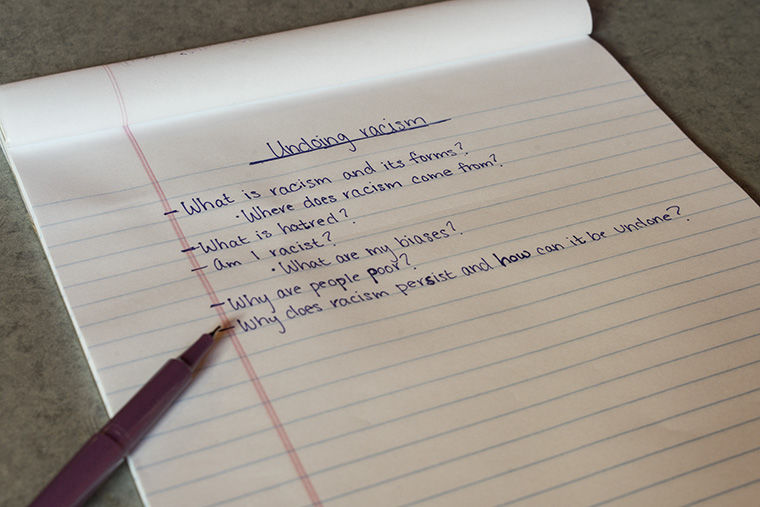‘Undoing Racism’ workshop done as part of five-year Strategic Plan
The ‘Undoing Racism’ workshop took place Aug. 25–26 as part of the ‘Diversity, Equity, and Inclusion’ goal in Columbia’s five-year Strategic Plan.
September 6, 2016
Selected Columbia faculty, staff and students attended a mandatory “Undoing Racism” workshop held Aug. 25–26. The event was led by The People’s Institute for Survival and Beyond, an international anti-racism organization focused on social change and stimulating candid conversation about diversity.
Senior Vice President and Provost Stan Wearden said the workshop was presented in support of the “Diversity, Equity and Inclusion” goal in Columbia’s Strategic Plan, implemented last year.
Wearden said the workshop is a commitment by the college’s top administrators to become national leaders on inclusion.
“Leadership is about deeply recognizing the root causes of racism, the systemic lack of inclusions [and] diversity and recognizing that you have to deal with it at every single level,” he said.
Attendees included members of the Strategic Plan Implementation and the Diversity, Equity and Inclusion Committee and the new Budget Model Task Force, according to an Aug. 22 email sent from the Office of the Provost. Students from the Student Government Association were also invited.
Elio Leturia, associate professor in the Communication and Media Innovation Department and member of the Diversity, Equity, and Inclusion Committee, described the experience as intense but beneficial.
“The topic of racism is a delicate topic,” Leturia said. “We know we live in a racist society, but we don’t talk about it.”
According to the People’s Institute website, its workshops mainly focus on racism’s origins, functions, persistence and how it can be undone.
Brian Shaw, a professor in the Theatre Department, said facilitators led conversations with participants who were divided into three groups.
“It’s really valuable to open that particular subject of discussion up in a room full of people you work with,” Shaw said.
The workshop started a discussion but was not enough to see a change, Leturia said.
“[Racism is] pretty much part of the culture, and you cannot change a culture [in] two days at all,” Leturia said.
Wearden said the college plans to bring the People’s Institute back to instruct select faculty and staff to become trainers.
“Institutional racism is [about] more than just our personal experiences with it,” Wearden said. “It’s about the institutional commitment to do something about it. The value for me was acquiring the language, learning the concepts and making a personal commitment to be part of the institutional work to undo racism at Columbia.”
While noting future diversity initiatives have not been decided, President and CEO Kwang-Wu Kim said he is proud of Columbia’s efforts.
“We’re not being reactive to an incident somewhere—this is part of our Strategic Plan for moving forward,” Kim said.
Kaela Ritter, Student Government Association president and business and entrepreneurship major, said in a Sept. 1 emailed statement that all of the attendees were very attentive and receptive to all information given during the workshop.
“All attendees left with more tools. It showed us how much work we needed to do not only within Columbia but in our society as a whole,” Ritter stated in the email. “We should really be zeroing in on issues and using the skills we gained to tackle them.”








